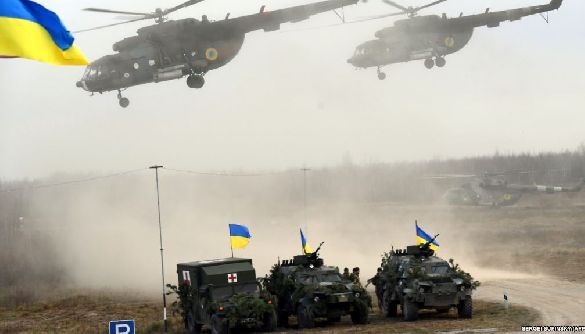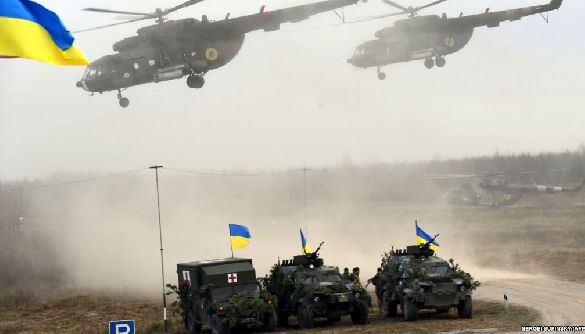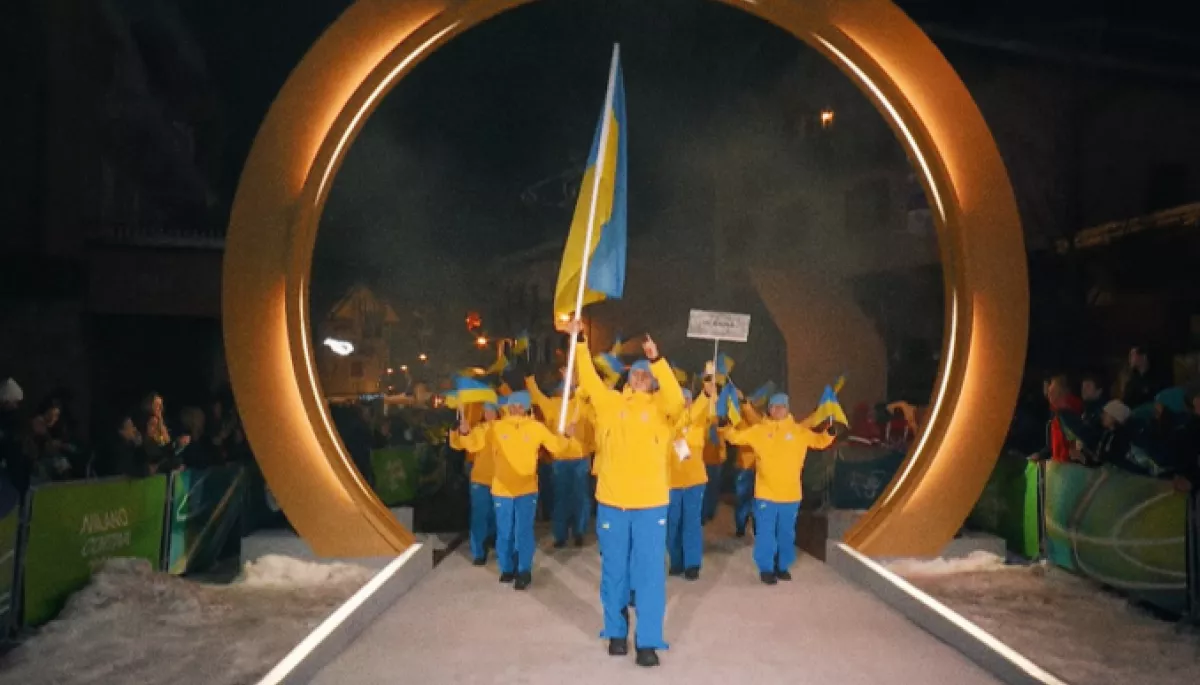
Martial Law Did Not Make Difference For Donbas
Martial Law Did Not Make Difference For Donbas


During November-December, monitoring of the government communication policy toward Donbas has detected such trends:
- President used his visits to Donbas to present himself as successful statesman, commander-in-chief and philanthropist;
- Ministry of occupied territories showed its excellence in communications on Donbas issues overshadowing cumbersome Ministry of information policy;
- nbsp; Splitted Opposition Bloc submerged in the war of words between former party fellows but the real fight for attention and favor of Donbas voters coming soon.
President was positive but superficial
In November-December president Petro Poroshenko mentioned Donbas 52 times. These were, predominantly, news about strengthening of the Armed Forces during martial law (15 times) and threats posed by Russia (16 times). Seven times president stressed importance of keeping international sanctions against Russia for seizure of Crimea and Donbas.
Six times president denounced “fake elections” in the occupied territories. It is interesting to know that, according to our analysis, the passage addressing “Ukrainians who live in the occupied territories” in the main president’s statement as attached, supposedly, in the last minute. We can assert it since we found wrong sequence of words and grammar mistakes in the text.
Thus, again we can see that president’s statement about illegal elections was more important as a message to the West than to his own constituencies. President does not hesitate to use troubles Donbas, caused by Russia, to remind the external stakeholders about himself. He was very clear about his motives when speaking to international conference in Kyiv. He spoke more about Russian arms, subversive actions and propaganda than about government’s achievements in Donbas.
The only time when Poroshenko briefly mentioned issues which Ukrainians face in the occupied territories was his remarks to international Forum, dedicated to 70th anniversary of the UN Declaration of Human Rights. However, it was just very short, bureaucratic list of crimes of the Russian invaders voiced only to put “Russia’s full responsibility for human rights violations in the occupied territories”
In 5 news releases we found presidential messages specifically targeted at the people living in Donbas. In November president made announcement about EU special aid program to Pryazovia (areas of Donetsk and Zaporizhia regions which lie on the shore of the Azov Sea). On December 12 president Poroshenko stated that he “has already submitted Ukraine’s proposal to EU, which includes list of humanitarian and infrastructure project that can be supported by our European partners”. On December 19th he again underlined importance of EU support to reconstruction of Donbas: “We made agreement with the Council of EU to start special programs for Donbas and Pryazovia to restore infrastructure, municipal transportation and housing in the “Skhidnyy” district of Mariupol, which suffered from missile attack in January 2015. It should become symbol of unity of all Ukrainians, symbol of unity within the EU”. On the next day while visiting Bakhmut, city in Donetsk oblast, president went on: “We approved special program for Donetsk and Luhansk regions which will be financed by EU funds, 54 million euros…It will be provided by EBRD”.
Thus we can say that Poroshenko made very specific, tangible promise to people in Donbas and Mariupol residents. It means that the Cabinet of Ministers must act accordingly. Moreover, taking into consideration electoral importance of city of Mariupol, president’s words will be followed very closely by his rivals.
In December while visiting Donetsk regions president Poroshenko did not hesitate to repeat his main political messages to his probable voters:
During ceremony of decoration of servicemen he said:
I want peace first and foremost. But it should be peace on condition of Ukrainian national interests not on conditions of surrender as some political dealers suggest. To defend our vision of peace we build up our army, restore our state. It is the mission for which Ukrainian people entrusted us.
While speaking to school students and their families in Bakhmut:
There is nothing more important than reviving Donbas after war destructions. We are to have new roads and houses, schools and kindergartens… We want to be Europeans, and independent nation not a colony. We are looking for respect… We want to see our children living in EU… The struggle for better Ukraine is going out here in Donbas
However, nice words do not substitute reasonable policies. During visits to Lviv, Chernihiv or Zhytomyr regions Poroshenko’s public communication and statements showed his genuine interest and knowledge of the local issues. In Donbas he just use very general, superficial rhetoric about peace and better life in the future. And it has very specific consequences when his subordinates in the Cabinet of Ministers read his opaque statements as an indicator of lack of will to solve issues. Consequently, the government tends to treat Donbas issues as unimportant and secondary.
Prime minister consistent in his ignorance
The one thing about prime minister communication about Donbas in November-December surprised us more than others. Contrary to president’s promises about “approval” of EU aid program, prime minister Hroisman told the press that his government only sent project proposals for such aid.
If it is true, then it means that there is no coherent communication between offices of president and prime minister about Donbas issues.
Moreover, when Hroisman announced priorities of the governmental actions in 2019 he missed a unique opportunity to tell people in Donbas what they should expect. He just said that the government would launch “program on psychological support of civilian population of Donbas” and that we urge his ministers to “establish mechanisms of such support” without further elaboration.
Unfortunately, in case of prime minister we were right when concluded that his communication depends on his prospects during and right after presidential elections. Since Donbas is not important constituency for president it is not worth of much business.
Ministry of occupied territories can carry on tasks of Ministry of information policy
In November-December minister of temporarily occupied territories Vadym Chernysh continued to use his office as a personal political springboard. Half of his 12 mentions of Donbas appeared to be his comments and interviews to mass media: TV channels, papers and internet sites. Among other things he mentioned Donbas during public events: international conference in Georgia, meetings in Moldova and speech to university students in Ostroh Academy.
On December 11 and 12 Chernysh posted (text and video) information about his visit to check point Stanytsia Luhancka together with UN Coordinator to inspect recent renovations. After careful analysis of these releases we can say that minister Chernysh proved to be a good communicator with representatives of foreign governments and international organizations. He made clear points and solid presentation about governmental work in Donbas.
Therefore, we wonder why the Cabinet of Ministers need ministry for information policy if MinTOT shows it can communicate about Donbas issues more efficiently?
Parliament: Opposition Bloc was paralyzed by internal crisis while Poroshenko’s Solidarnist and Tymoshenko’s Batkivshchyna imitated competition
Split of the Opposition Bloc and defection of its leader and presidential hopeful Yuriy Boyko to party “For Life”, headed by another renegade, former member of Opposition Bloc faction Vadym Rabinovych, seriously impacted communication of pro-Russian parties with their voters in Donbas.
The Opposition Bloc and its newly established rival “Opposition Platform – For Life” (OPFL) started bitter struggle for attention of loyal audience. Until mid-December official web page of Opposition Bloc contained news and direct speech of the defectors (Yuriy Boyko, Serhiy and Yulia Liovochkin, Vasyl Nimchenko). At the same time Mr.Boyko and his loyalists began to communicate with their supporters from the new online platform – official site of the “Opposition Platform – For Life”.
Activity of the new OPFL has two striking features. They do not address directly to people in Donbas and repeat messages of the OPFL shadow master Viktor Medvedchuk, Putin’s informal representative in Ukraine.
For instance, after Medvedchuk condemned martial law as “assault against people from southern and eastern regions of Ukraine”, he was immediately echoed by former Opposition Bloc members Nimchenko and Boyko.
We also noticed that remaining Opposition Bloc speakers like Vadym Novinskiy were less radical in their attacks against president’s policies than speakers of OPFL like Medvedchuk. At the same time OPFL new representative Yulia Liovochkina looked poorly while speaking about situation in Donbas in comparison to more detailed and consistent communication presented by her former colleague Natalia Korolevska who spoke for Opposition Bloc.
Thus we expect that in the coming months Opposition Bloc would fight severely against new rival despite the fact that OPFL is headed by it most popular and visible leader Yuriy Boyko. We think that Opposition Bloc will try to fix damages by intensive field work in Donbas constituencies.
Meanwhile, on the other end of political spectrum Poroshenko’s and Tymoshenko’s parties engaged in what could not have been called a zealous encounter.
Although both Solidarnist (43 news) and Batkivshchyna (17 news) actively used Donbas issues there were only 12 news in total, evenly divided between rivals, when MPs spoke specifically about real things.
Inside Batkivshchyna, head of parliamentary committee on human rights Hryhoriy Nemyria accused government and president in discriminating actions against internally displaced persons. Yulia Tymoshenko got every opportunity, whether “fake elections” or party congress, to attack president and promote her peace plan. However, Tymoshenko used the same vague rhetoric when she spoke about prospects of peace in Donbas.
Members of Solidarnist faction also avoided speaking to and with people of Donbas. They preferred to raise Donbas issues at meetings with foreign officials or during PR events in Kyiv and near line of contact. It was more comfortable for them to condemn political rivals and control hesitant allies than to communicate with common people about urgent problems of Donbas.
To sum it up we can state that on the eve of the official start of presidential campaign (on December 31st) members of parliaments, regardless to their political affiliations, forgot about their voters and focused on serving to leaders who make real decisions about their political future. As we noticed earlier, in such environment speaking about Donbas issues is more liability than asset for many politicians.
Фото: Радіо Свобода












